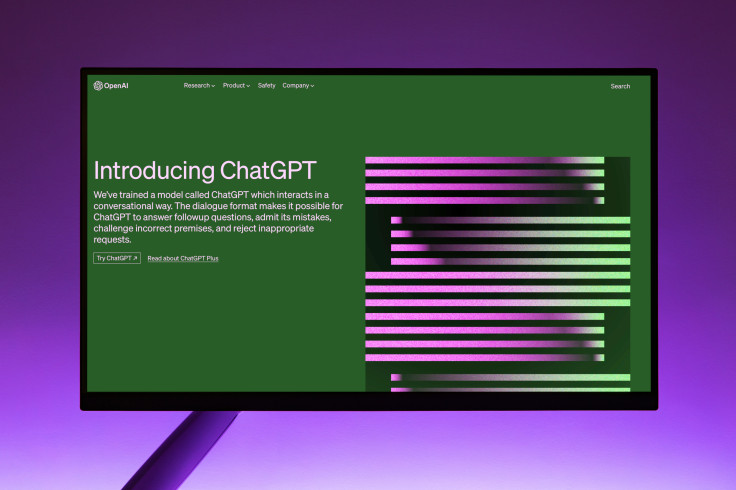China Police detains two gangs involved in creating fake news using ChatGPT
Chinese regulators have banned ChatGPT due to privacy concerns.

The police in China have taken severe measures against two different groups creating fake videos with the help of OpenAI's ChatGPT AI bot. One of the gangs was busted in May, while the other was nabbed last month.
In May, China also removed 1.4 million social media posts and deleted 67,000 social media accounts to make it easier for authorities to control. To those unaware, ChatGPT is an AI chatbot that generates responses based on user prompts and questions.
News-rating group NewsGuard recently identified a slew of news websites that offer fake news created with the help of ChatGPT-like chatbots. According to AP News, ChatGPT has also been used to create deep fakes, which allude to forged digital images and videos that appear to be real.
A Business Insider report claims ChatGPT-generated deep fakes are a particular concern because they are difficult to detect. Now, the folks at IT Home have confirmed that police in China have busted two gangs that were using ChatGPT to spread misinformation through deep fake videos.
The first gang was busted in May
A police report from the northwest Chinese province of Gansu mentions one of the members of the gang, who is identified only by his surname, Hong. According to the report, Hong used ChatGPT to make a fake news article about a crash that caused the deaths of nine Gansu-based construction workers.
Hong has admitted that he made fake news about the train crash with the help of ChatGPT. Hong's arrest is the first detainment since the Asian nation's new regulation on deep fake tech was enforced in January. This law aims to prevent the mishandling of tech that can be used to modify faces and voice data.
Even genuine news sources were deceived by this fake story, which was going viral at the time. The article was eventually removed, but it already had 15,000 views. "Hong used modern technology to fabricate false information, spreading it on the internet, which was widely disseminated," the police statement stated.
Shaoxing police crack China’s 1st case involving criminal use of AI to hack websites https://t.co/CmQhPlJUky
— Adam Segal (@adschina@mastodon.social) (@adschina) September 26, 2017
Shaoxing police say the same gang illegally purchased a considerable number of video accounts back in May to create fake videos using ChatGPT.
Another gang was busted in June
During an online probe on June 2, the Shangyu police found that an app user named "Shangyi Explanation" had posted a video about a fire in the Shangyu Industrial Park. As expected, the video began to make rounds online and had raked in hundreds of views.
After checking the video, the police found that it was fake news. The Shangyu police found out about a tech group in another province that made similar fake videos. On June 5, the police arrested three suspects from other provinces.
1/4 A Chinese man has been arrested for creating false information using Microsoft-backed OpenAI's natural language processing AI system, ChatGPT.
— 3PointInsights (@3PointInsights) May 9, 2023
The gang used ChatGPT to produce fake videos. Their goal was to gain traffic, which would eventually lead to profits for the group.
So far, the group has illegally purchased over 1,500 video accounts and posted over 3,000 fake videos. Although the arrested suspects have confessed to the crime, the police are still probing for more suspects. It is worth noting that the gang isn't linked to OpenAI or ChatGPT in any way. In fact, ChatGPT is banned in China.
It is illegal to use ChatGPT in China
Chinese regulators have reportedly restricted access to ChatGPT. Still, there are some workarounds such as VPNs (virtual private networks). So, China is understandably concerned about the spread of misinformation.
Apparently, the Chinese government believes ChatGPT can help in the spread of propaganda. According to a Forbes report, China's "great firewall" blocks ChatGPT and other foreign web platforms that go against the country's censorship laws.
Searching for ChatGPT on Chinese platforms will not return results. However, some third-party developers had previously created programs that provide some access to the widely popular AI bot. These workaround programs have either been replaced or disabled with a notice stating, they have been removed for "violating relevant laws and regulations."
© Copyright IBTimes 2024. All rights reserved.






